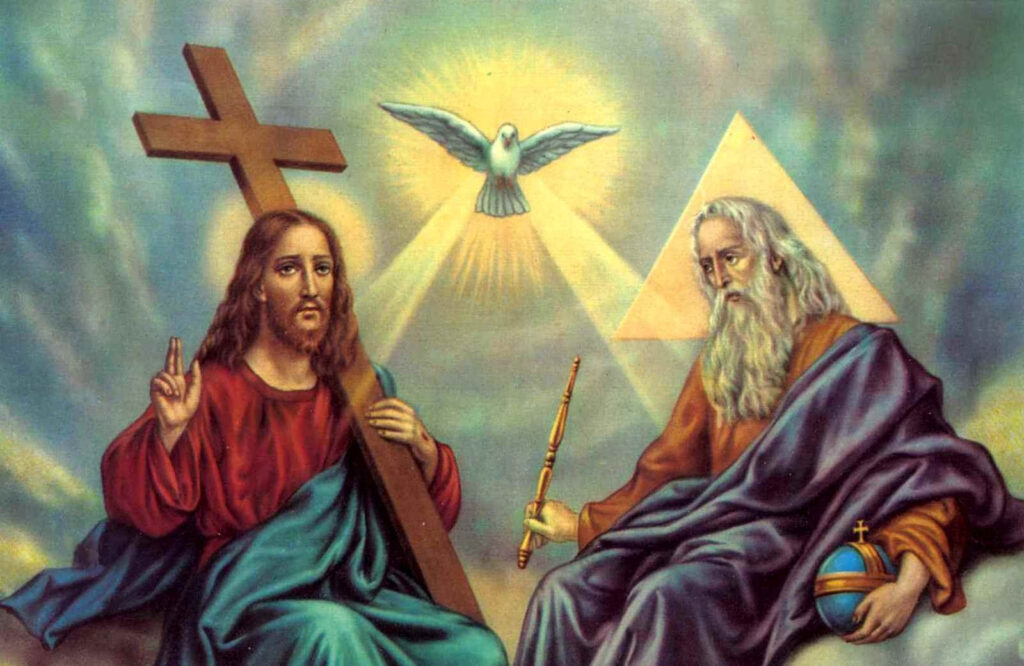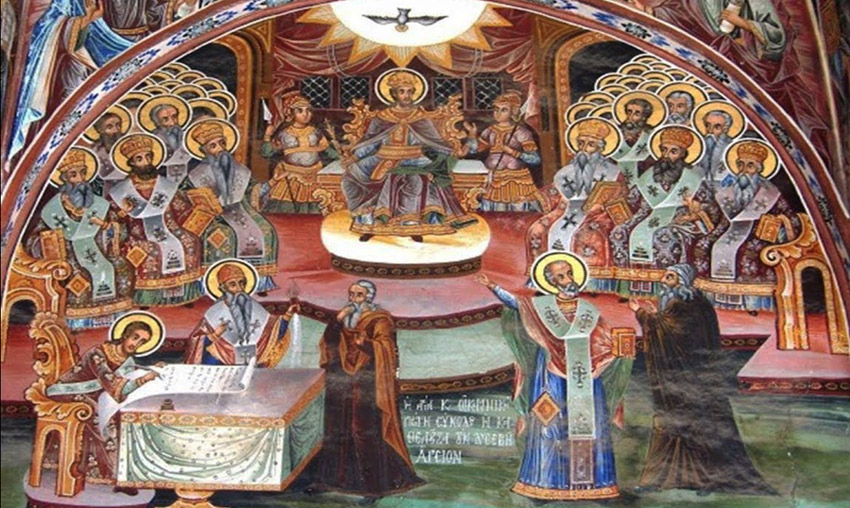The Orthodox Church is rooted in the living continuity of the Apostolic faith — a faith handed down from Christ to His disciples, and preserved without distortion for over two millennia. From its earliest days, the Orthodox Church has seen herself not as one Christian tradition among many, but as the faithful guardian of the fullness of the historic Christian Faith.
This ancient tradition is not a relic of the past. It is a living, Spirit-filled reality — vibrant, transformative, and deeply relevant to our lives today. Let’s explore the foundational teachings of the Orthodox Church: its doctrines, creeds, and sacred affirmations.
The Living Church: Faith and Community Are Inseparable
In Orthodoxy, Christ and His Church are inseparable. The Church is not just a community of like-minded believers — it is the very Body of Christ. To know Christ, to share in the life of the Holy Trinity, and to live as a true Christian is only possible within the Church.
This means that faith is not a private journey. It is a communal life, nourished by the sacraments, guided by Scripture and Tradition, and sustained by the Holy Spirit. It is in and through the Church that the Christian life is proclaimed, practiced, and passed down from generation to generation.
Divine Revelation: God Revealed, Not Imagined
Orthodox Christianity begins not with human questions, but with God’s answer. The foundation of our faith is the self-revelation of God — most fully and personally in Jesus Christ, the Son of God.
This divine self-disclosure is not a distant event locked in history. By the power of the Holy Spirit, God’s revelation remains present and active in the life of the Church today. Each morning in prayer, Orthodox Christians proclaim: “God is the Lord and has revealed Himself to us.”
While God’s essence remains beyond human comprehension, He is truly known — as Father, Son, and Holy Spirit — through His actions and presence in the world. This lived experience of the Holy Trinity is central to Orthodox faith, worship, and salvation.

The Trinity: One God, Three Persons
The doctrine of the Holy Trinity is not a theological theory, but a reality encountered in worship and life. The Orthodox Church teaches that there is one God in three Persons: the Father, the Son, and the Holy Spirit — co-equal, co-eternal, and consubstantial.
To experience one Person of the Trinity is to encounter the fullness of God. Though the Trinity is a mystery, Orthodox Christians believe we can participate in this divine life through prayer, the sacraments, and the Eucharist — the very heart of our worship.
The Incarnation: God Became Man
Equally central to Orthodox belief is the doctrine of the Incarnation — the astounding truth that the eternal Son of God became man in the person of Jesus Christ.
Jesus is not merely a wise teacher or a holy prophet. He is the Word made flesh, fully God and fully man. In Him, divinity and humanity are united without confusion, separation, or division.
Through His birth, life, death, and resurrection, Christ conquered sin and death, restored us to communion with God, and revealed the true nature of humanity. As the Church Fathers boldly stated, “God became what we are, so that we might become what He is.”
The Scriptures: Witness to God’s Revelation
The Holy Scriptures hold a central place in Orthodox worship and theology. The Bible is read in every service and is revered as a sacred witness to God’s revelation.
The Old Testament prepares the way for Christ and tells the story of God’s covenant with His people.
The New Testament reveals the fullness of God’s love through the Incarnation, ministry, death, and resurrection of Jesus Christ. The Gospels, the Acts, the Epistles, and the Book of Revelation form the written record of the early Church’s experience of the Risen Lord.
Yet, while the Bible is essential, the Orthodox Church does not limit revelation to Scripture alone.
Holy Tradition: More Than Written Words
Orthodox Christianity understands the Faith as something larger than the written word. Holy Tradition is the living transmission of the Faith — the life of the Church through the centuries, guided by the Holy Spirit.
Tradition includes:
The teachings of the Church Fathers
The liturgy and sacraments
The Ecumenical Councils
The witness of the saints
Prayers, hymns, and sacred icons
The lived experience of the faithful
Scripture is part of this Tradition, not separate from it. Together, they form the unified whole of the Church’s life in Christ.
The Ecumenical Councils: Guarding the Truth
The Orthodox Church does not seek to explain every mystery or to systematize the Faith. Rather, it affirms that God is beyond full comprehension — but not beyond true relationship.
Only when essential truths of the Faith are threatened does the Church define doctrine clearly. This was the purpose of the Seven Ecumenical Councils — gatherings of bishops from across the Christian world in the early centuries of the Church. Their decisions did not invent new doctrines but affirmed what the Church had always believed.
These councils gave us the foundational Creed that expresses our shared Christian belief.
The Nicene Creed: Our Symbol of Faith
The Nicene Creed, composed at the Councils of Nicaea (325) and Constantinople (381), remains the clearest and most authoritative summary of Orthodox belief. It is recited at every Divine Liturgy and during Baptism, and it unites Orthodox Christians across languages, cultures, and centuries.
The Nicene Creed
I believe in one God, the Father Almighty,
Maker of heaven and earth, and of all things visible and invisible.And in one Lord Jesus Christ, the Son of God,
the Only-begotten, begotten of the Father before all ages.
Light of Light, true God of true God,
begotten, not made; of one essence with the Father;
by whom all things were made.Who for us men and for our salvation
came down from heaven,
and was incarnate of the Holy Spirit and the Virgin Mary,
and became man.He was crucified for us under Pontius Pilate,
and suffered and was buried.
The third day He rose again, according to the Scriptures.
He ascended into heaven and sits at the right hand of the Father.
And He shall come again with glory to judge the living and the dead;
whose kingdom shall have no end.And in the Holy Spirit, the Lord, the Giver of life,
who proceeds from the Father,
who with the Father and the Son together is worshiped and glorified,
who spoke by the prophets.In one, holy, catholic, and apostolic Church.
I acknowledge one baptism for the remission of sins.
I look for the resurrection of the dead,
and the life of the age to come. Amen.
Conclusion: A Living Faith for the Life of the World
The Orthodox Church is not just a custodian of ancient beliefs — she is a living community of faith, hope, and love. Rooted in the unchanging truth of Jesus Christ, the Church offers every person the opportunity to encounter God, to grow in holiness, and to share in the divine life of the Holy Trinity.
Whether you are exploring Orthodoxy for the first time or deepening your journey in the Church, the timeless teachings of the Faith continue to invite you into a relationship with the living God — Father, Son, and Holy Spirit — now and forever.

